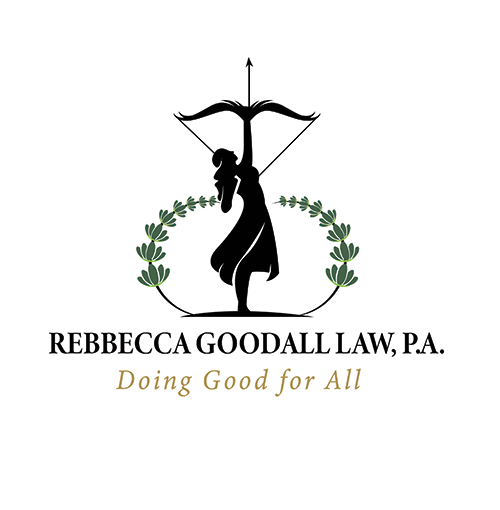Do You Have Unpaid Medical Debts That Should Be Covered by Workers’ Compensation?
After a workplace injury, the last thing you should be worried about is medical debt. Florida’s workers’ compensation system is designed to pay for necessary treatment and protect employees from out-of-pocket expenses related to on-the-job injuries. Yet many workers find themselves facing unexpected bills, collection calls, and even credit damage when the insurance carrier delays or denies payment. If this sounds familiar, you may have the right to dispute the charges and repair your credit.
When Workers’ Compensation Should Cover Medical Costs
Under Florida law, any injury or illness that arises “out of and in the course of employment” is typically covered by workers’ compensation. This includes doctor visits, hospital stays, surgeries, medications, and rehabilitation. Once your claim is accepted, the insurer is responsible for paying providers directly — you should not receive bills for covered care.
Problems arise when communication breaks down between the insurer, the medical provider, and the billing department. Even a short delay in authorization or payment can cause a provider to send your balance to collections. Once that happens, the medical debt may appear on your credit report, even though you are not legally responsible for it.
Why Unpaid Medical Debts Appear After a Work Injury
Medical billing systems often move faster than workers’ compensation processing. In many cases, accounts are reported delinquent long before insurance payments are completed. We frequently see errors that include:
- Delayed insurer responses: The carrier takes weeks to approve or deny claims, leaving providers in limbo.
- Duplicate billing: A provider bills both workers’ compensation and the patient directly.
- Improper denials: The insurer claims the injury was “not work-related” or that the provider was “out of network.”
- Collection agency mistakes: Debts are sold to collectors even after payment has been issued.
Once reported, these debts can quickly harm your credit, making it harder to rent housing, finance a car, or qualify for loans. Fortunately, both state and federal law protect you from being held accountable for medical bills that were the insurer’s responsibility.
How Workers’ Compensation Errors Affect Your Credit
When a billing error sends a workers’ comp medical balance to collections, it often appears as an unpaid medical account on your credit report. Even if it’s eventually paid by the insurer, the damage may already be done. A single collection entry can drop your score by 50 to 100 points, depending on your credit history.
If you’ve noticed a medical collection linked to a workplace injury, it’s important to take immediate action. You can dispute the entry and provide evidence that the balance should have been paid by workers’ compensation. Our Credit Reporting Dispute Services help clients challenge these entries under the Fair Credit Reporting Act (FCRA) and have them removed.
Steps to Correct a Workers’ Comp Medical Debt Error
Here’s how to begin the process of correcting medical debt that should have been covered by your employer’s insurance:
- Request your credit reports. Get free copies from Equifax, Experian, and TransUnion at AnnualCreditReport.com.
- Locate the disputed account. Identify the provider name, account number, and amount listed as unpaid.
- Gather workers’ comp documentation. Collect copies of claim filings, insurer correspondence, and any explanation of benefits (EOB) showing that the provider was paid or the claim is pending.
- File a written dispute. Submit your evidence to each credit bureau and the collection agency. Include proof that the debt is linked to a compensable workplace injury.
- Contact legal support. If the credit bureaus or collectors ignore your dispute, our firm can escalate the matter under federal law and demand removal or compensation.
Holding Debt Collectors Accountable
Debt collectors often pursue payment even when they know an insurer should have paid the bill. This can violate the Fair Debt Collection Practices Act (FDCPA) and Florida’s Consumer Collection Practices Act. If you’ve received calls or letters about medical bills connected to a work injury, you may have grounds to sue debt collectors for damages.
Examples of unlawful behavior include:
- Threatening to garnish wages or “send a process server”
- Calling repeatedly after being asked to stop
- Reporting the debt to credit bureaus without verifying its accuracy
- Refusing to remove an entry after being provided documentation
If this has happened to you, our Cease and Desist Letter Services can stop the calls immediately while we pursue legal remedies on your behalf.
When Credit Bureaus Fail to Fix the Error
Credit bureaus must investigate disputes within 30 days. If they fail to verify the information or continue to report an inaccurate debt, they may be in violation of the FCRA. In these cases, our firm helps clients file formal complaints or lawsuits to hold the bureaus accountable.
We’ve represented numerous Florida workers who faced false credit reporting after a work-related injury. In one recent case, a client in New Port Richey had emergency surgery after a workplace accident. The hospital billed both workers’ compensation and the patient. When the insurer delayed payment, the provider sent the balance to collections. We intervened, documented the insurer’s responsibility, and forced deletion of the entry along with damages for emotional distress.
Preventing Future Reporting Problems
If you’re currently under workers’ compensation care, take proactive steps to avoid credit issues:
- Keep detailed notes of every medical visit and bill received.
- Confirm your provider is billing the insurer directly, not you.
- Notify both the insurer and your attorney if you receive a statement that appears to be a direct bill.
- Check your credit reports at least twice a year to catch errors early.
If you see any suspicious entries, contact our Credit Reporting Issues team immediately. Early intervention prevents unnecessary damage and protects your rights before the collection process begins.
Other Common Situations We Handle
Our firm assists Florida consumers with a wide range of financial protection issues, including:
- Medical Debt Defense for patients facing lawsuits or collections from hospitals or doctors.
- Identity Theft and Credit Repair when false accounts or insurance mix-ups appear on your report.
- Legal action against credit bureaus that refuse to remove inaccurate information.
- Debt Collection Defense to protect against unlawful or duplicative claims.
Serving Florida Workers Across Pasco County
Rebecca Goodall Law, P.A. proudly serves residents of Elfers, New Port Richey, Holiday, Beacon Square, Jasmine Estates, and Tarpon Springs. We work directly with clients, insurers, and medical providers to resolve disputes quickly and protect your credit standing.
If medical debt tied to a workplace injury has appeared on your credit report, you may be eligible for relief under both state and federal law. Call (813) 438-3695 or schedule a free consultation today to discuss your options. We’ll review your report, contact the responsible parties, and fight to have the false debt removed.



